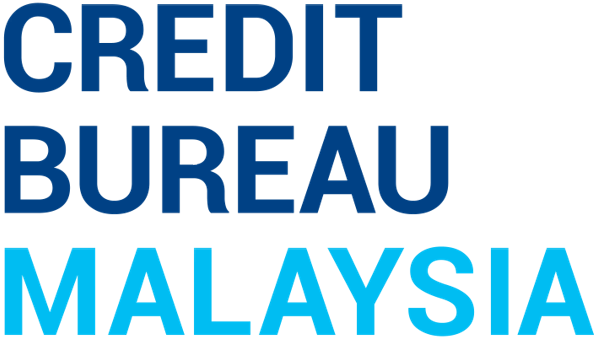

In countries like Malaysia, where the financial scene is always evolving, a lot of us do not fully understand what a credit report is about and what it really does. This could muddle up the way we make financial decisions or what we think about our credit health. It’s super important to get the real scoop on these myths below because it helps us manage our money better. Here are 5 common misconceptions about credit reports.
Here are 5 common misconceptions about credit reports:
Myth 1: Checking Your Credit Report Lowers Your Score
A common belief that checking your own credit report can negatively impact your own credit score/worthiness is a rather widespread myth in Malaysia. This misunderstanding arises from confusion about the types of credit inquiries. When you conduct a personal check of your credit report, it’s considered a ‘soft inquiry.’ These soft inquiries are harmless to your credit score/worthiness and do not affect your credit score. Contrary to being harmful, regularly reviewing your credit report is a wise and prudent financial practice. It keeps you informed about your current financial status, enables you to promptly address any inaccuracies, and serves as a safeguard against potential fraudulent activities.

On the other hand, hard inquiries occur when you apply for new credit, such as a loan or a credit card. These inquiries may have a minor and temporary impact on your credit score/worthiness. Understanding the difference between soft and hard inquiries is important. Hard inquiries are part of the credit evaluation process and differ significantly from personal credit checks. Recognizing this distinction is essential, as it encourages regular personal credit report monitoring—a crucial practice for maintaining a healthy credit profile. Regular personal credit report monitoring not only dispels fears about damaging your credit score/worthiness but also considered as a proactive step in the management of your credit health.
Myth 2: Not Having a Credit Card Improves Your Credit Score
There’s a belief that avoiding credit cards altogether can boost your credit score/worthiness. However, this isn’t entirely accurate. Credit cards, when used responsibly, are crucial tools for building a positive credit history. Timely repayments and maintaining a low credit utilization ratio may significantly enhance your credit score.

Conversely, not having a credit card might result in a ‘thin credit file,’ which can pose challenges in credit assessments by credit providers. A robust credit history, including responsible credit card usage, is often a key factor in evaluating creditworthiness for loans or mortgages.
Myth 3: Your Credit Report Contains Complete Financial Information
A common misconception in Malaysia is that a credit report is a comprehensive dossier encompassing a data subject’s entire financial history, and for individuals, it includes but is not limited to details like income, investments, savings, and assets. In reality, credit reports primarily focus on credit history, the eligibility to be provided with credit and/or the capacity to repay credit.
They provide valuable information about credit accounts, including loans and credit cards, along with repayment records and amounts owed. These reports, which at times, also incorporate data from the Central Credit Reference Information System (CCRIS) database maintained by the Central Bank of Malaysia, could reflect how consistently a data subject manages and repays debts.

However, they do not cover every financial aspect of the data subject. Elements such as income levels and asset holdings are typically not included in credit reports for individuals but may be evaluated separately by credit providers during financial assessments.
Myth 4: A Poor Credit Report Is Permanent
The notion that a poor credit report is an unchangeable blemish is a common misconception. Credit reports are dynamic and evolve with your financial behavior.
Addressing past due payments and maintaining regular, on-time repayments may gradually improve a tarnished credit report. Negative entries, such as late payments or defaults may diminish in impact over time as you gradually demonstrate more positive financial habits.
Regularly reviewing your credit report for errors and disputing any inaccuracies is also vital, as these inaccurate information may unfairly affect your credit score/worthiness.
Understanding that credit repair is a progressive journey can provide hope and motivation to data subjects striving to improve their financial standing.
Myth 5: Unemployment Directly Lowers Your Credit Score
The belief that unemployment directly and immediately lowers your credit score is a widespread myth. In truth, your employment status is not a direct factor in credit score calculations.
Credit scores are predominantly derived from credit-related activities, including payment history, amounts owed, credit history length, new credit, and types of credit used.

However, the financial challenges that often accompany unemployment, such as late payments or increased reliance on credit, may indirectly impact your credit score/worthiness.
Thus, maintaining prudent financial management during unemployment, prioritizing on essential expenses only, and keeping up with timely debt repayments are crucial.
Building an emergency fund during periods of employment could also help to manage debt repayments during periods of unemployment.
Conclusion
Navigating the world of credit reports in Malaysia doesn’t have to be confusing. By busting these common myths, we hope you feel more empowered to make smarter financial decisions. Remember, understanding and regularly checking your credit report is one of the keys to maintaining good financial health. If you’re curious about your credit standing, why not take a closer look? Get your MySCoRE report here – https://creditbureau.com.my/get-my-credit-report.


